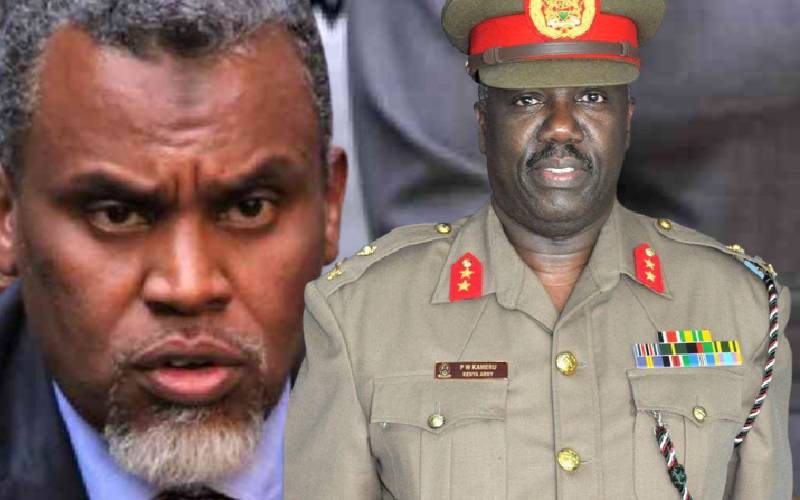×
The Standard e-Paper
Join Thousands Daily

Exiting spy man Maj-Gen (rtd) Philip Kameru's failure to tame Azimio protests and his designate-successor Noordin Haji's success in striking a rapport between government and opposition informed the changes at the secret service agency.
While Kameru's exit from the corner office at the NIS headquarters in Ruaraka came as a surprise to many Kenyans, it was not lost to top bureaucrats within the power circles of President Willliam Ruto who had seen it coming.